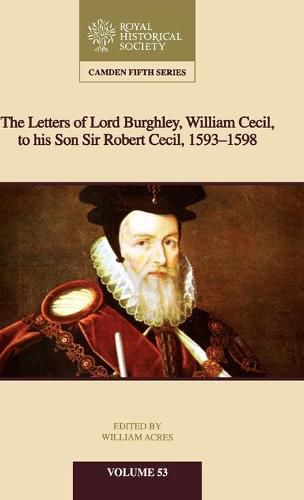Readings Newsletter
Become a Readings Member to make your shopping experience even easier.
Sign in or sign up for free!
You’re not far away from qualifying for FREE standard shipping within Australia
You’ve qualified for FREE standard shipping within Australia
The cart is loading…






The 128 letters of William Cecil, Lord Burghley, to his son Sir Robert Cecil in Cambridge University Library, Manuscript Ee.3.56, are the largest collection of papers showing the close direction and counsel he gave his son in seeking and obtaining the office of Principal Secretary, 1593-1598. The materials concentrate on the task of receiving and crafting a wide and large array of papers on behalf of Queen Elizabeth I and her Privy Council; finance, administration, foreign policy, and religion figure prominently, as does the shift from continental war to Ireland. These letters also reveal the intimate relationship between the father and son; Burghley’s care for his family, his thoughts of death, and a unique record of illness and old age are framed by his political and spiritual anxieties for the future of the Queen and her realms.
$9.00 standard shipping within Australia
FREE standard shipping within Australia for orders over $100.00
Express & International shipping calculated at checkout
The 128 letters of William Cecil, Lord Burghley, to his son Sir Robert Cecil in Cambridge University Library, Manuscript Ee.3.56, are the largest collection of papers showing the close direction and counsel he gave his son in seeking and obtaining the office of Principal Secretary, 1593-1598. The materials concentrate on the task of receiving and crafting a wide and large array of papers on behalf of Queen Elizabeth I and her Privy Council; finance, administration, foreign policy, and religion figure prominently, as does the shift from continental war to Ireland. These letters also reveal the intimate relationship between the father and son; Burghley’s care for his family, his thoughts of death, and a unique record of illness and old age are framed by his political and spiritual anxieties for the future of the Queen and her realms.